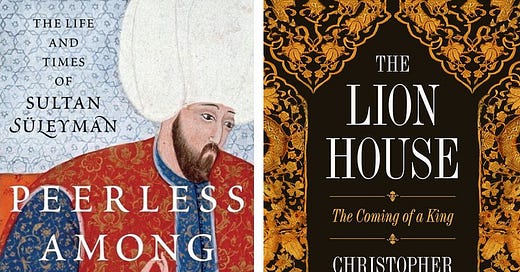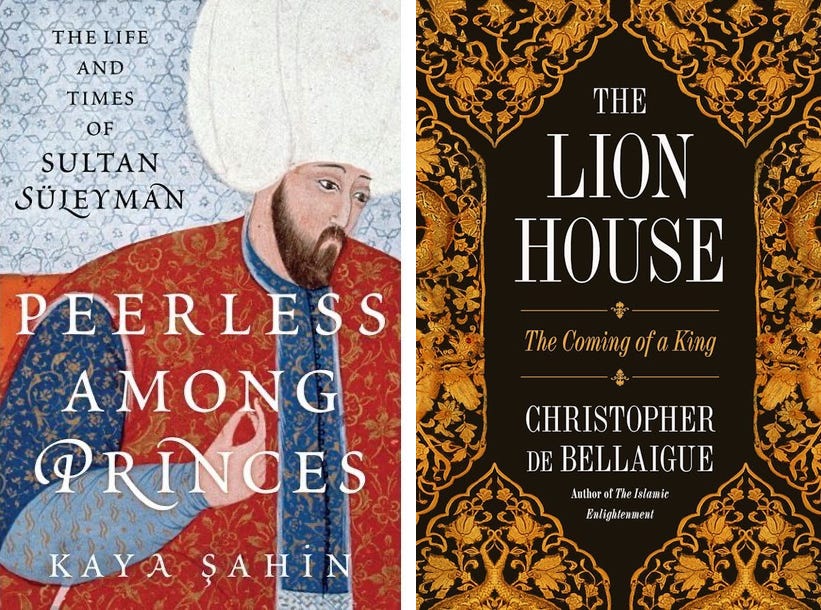Review: Colin Thubron on Süleyman the Magnificent
The reign of the Turkish sultan Süleyman the Magnificent, from 1520 to 1566, saw the Ottoman empire reach its tumultuous zenith, spread from Budapest to the Persian Gulf. In a time of powerful monarchs—the Moghul emperor Akbar, the Holy Roman Emperor Charles V, Francis I of France—Süleyman’s realm was the most extensive on earth. Yet he himself remains opaque.
The Turkish historian Kaya Şahin, in his Peerless among Princes: The Life and Times of Sultan Süleyman, mines a wider and deeper range of scholarship and archive than his predecessors, and arrives at a portrait and a history more detailed and nuanced than the standard story of an austere despot in a Golden Age. His attention to Süleyman’s youth makes for a compelling and foreboding portrait. Ottoman practice sanctioned fratricide to safeguard the unity of the empire, and Süleyman in his youth, like his grim father Selim I, lived in daily expectation of death. Even at the height of his power Süleyman was described as pale and melancholy, but passionate too, and impulsive.
The singular mystique that surrounds him—from his ferocious incursions into eastern Europe to his intense comradeship with his Grand Vizier, a Greek slave, and his monogamous love for a Slavic concubine whom he married against all Ottoman practice—is nuanced here by a writer resistant to Western cliché and sentiment. Süleyman inhabited a world profoundly different from that of his European peers. Almost all his close associates—ministers, concubines, elite soldiery—were slaves captured in youth, converted to Islam, and dedicated exclusively to his service. In the depths of the Topkapi palace he lived in a secrecy that deepened his aura as the Shadow of God on Earth. Even his wars were tinged with messianic purpose.
Keep reading with a 7-day free trial
Subscribe to Book Post to keep reading this post and get 7 days of free access to the full post archives.



